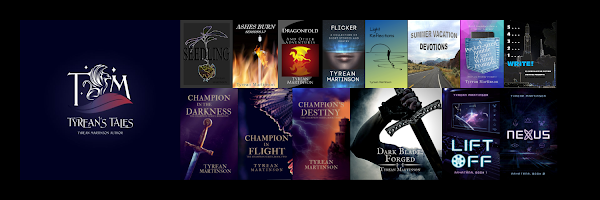ML Swift started an excellent writers' book club, called the Progressive Book Club a few months ago, and this month we are delving into Save the Cat!
 For starters, I have to say that I have marked this book on nearly every page, and found a great deal of useful information, so much that I had a tough time narrowing down my post for today. So, I decided to create a list, or two lists.
For starters, I have to say that I have marked this book on nearly every page, and found a great deal of useful information, so much that I had a tough time narrowing down my post for today. So, I decided to create a list, or two lists.
List #1, The Best Parts of Save the Cat!
1. Concise, clear writing throughout that hit the heart of each idea quickly and thoroughly.
2. Two chapters that help a writer nail the Logline - both the actual logline chapter, and the one on heroes. Loglines rock! (or at least I find them incredibly helpful, and I love Snyder's insights into writing them)
3. Give me the Same Thing, Only Different - so true, and I enjoyed reading Snyder's basic genres.
4. The Blake Snyder Beat Sheet was in depth, and at the same time, doable. I could see where some of my past efforts could have used a Beat Sheet, and I'm going to apply it to my 2nd novel, Champion in Flight, while I still can (it's in second draft phase now).
5. The Beast Board Chapter was interesting, and I can see now why creating a story board could be really helpful. I've never done it, but I may try it.
6. What's Wrong with this Picture was a great chapter on figuring out problems in a story line.
7. The exercises at the end of each chapter were excellent. I just need to get up the courage to pitch my book logline to everyone I meet, and get their reaction.
List #2, The Parts I didn't like or felt didn't apply to novel-writing.
1. I think the marketing stuff is nearly pure Hollywood, so it didn't feel like it applied, except the high-low roller coaster of emotion stuff that every writer feels.
2. I'm not sure Double Mumbo Jumbo completely applies to novels. I think that one rule of magic has to apply throughout a story, and in that way I agree, but I disagreed with his Signs example - to me the whole God and alien double question doesn't necessarily cause too much of a dilemma. I felt it was a classic case of inner and outer conflict going on at the same time. To me, it wasn't two different "magic systems" with different rules. Anyway, that's just my little rant there.
Overall, I loved this book, and I know I'm going to be coming back to it often. Thank you, ML, for giving me the impetus to read it, and thank you Progressive Book Club!
Sorry, this is so late in the day, but I kind of forgot to write the post, and I'm home-schooling and writing at the same time. Think, write a sentence, stop and discuss a different topic with kids - so I've got writing, Civil War history, interview questions (public speaking class homework assignment), grammar, algebra, and ratios (younger daughter), and listening to Latin recitations, all on my mind at the same time. . . kind of crazy, but it keeps me moving.


You homeschool and blog well!
ReplyDeleteThe Beat Sheet made this book for me. So helpful!
Absolutely one of my favorite books on writing. Hard to find one with more practical tips.
ReplyDeleteAgree with #5. It's easier to pitch a 3x5 card than a scene you've spent hours writing. LOL
ReplyDeleteGreat post. Better late than never. ;)
Alex - Thanks! (and I just answered the question "how do you spell participation?")
ReplyDeleteThe beat sheet was the best part of the book.
EJ - Yes, I liked the practicality of this book as well. So many writing books spend chapters discussing the "feeling of writing" without giving any good tips, so I felt thankful to read one that stuck mainly to practical writing helps.
Melissa - Definitely! And Thanks!
The beat sheet is what stood out to me the most and what I've heard other writers say they liked the best. Good breakdown of the pros and cons, Tyrean.
ReplyDeleteWhat a great rundown. The visual tools were the best part of the book, I think. I appreciate your thoughts on the Double Mumbo Jumbo. That part got me thinking, too.
ReplyDeleteAlgebra! My goodness, that alone would be enough to cover all the capacity of my brain so you have my admiration. *bows*
ReplyDeleteAnd you made me think. I'll let some time pass and wait for the right timing.
It's taking me a re-read to completely 'get' the beat sheet, but it looks worth the effort. Good sum up of the book.
ReplyDeleteThe book had some good points. I don't believe I would ever write a screenplay though.
ReplyDeleteYep, I definitely liked his section on loglines in particular. It really helped.
ReplyDeleteI've heard a lot of good things about this book...I'm going to have to pick up a copy.
ReplyDeleteI really have to read Save the Cat one day.
ReplyDeleteI'm with Misha. It's worth the time, but where's the time? I'll find it!
ReplyDeleteBTW I see you're getting those lovely "Anonymous" comments just as I am. Nuisance, isn't it?